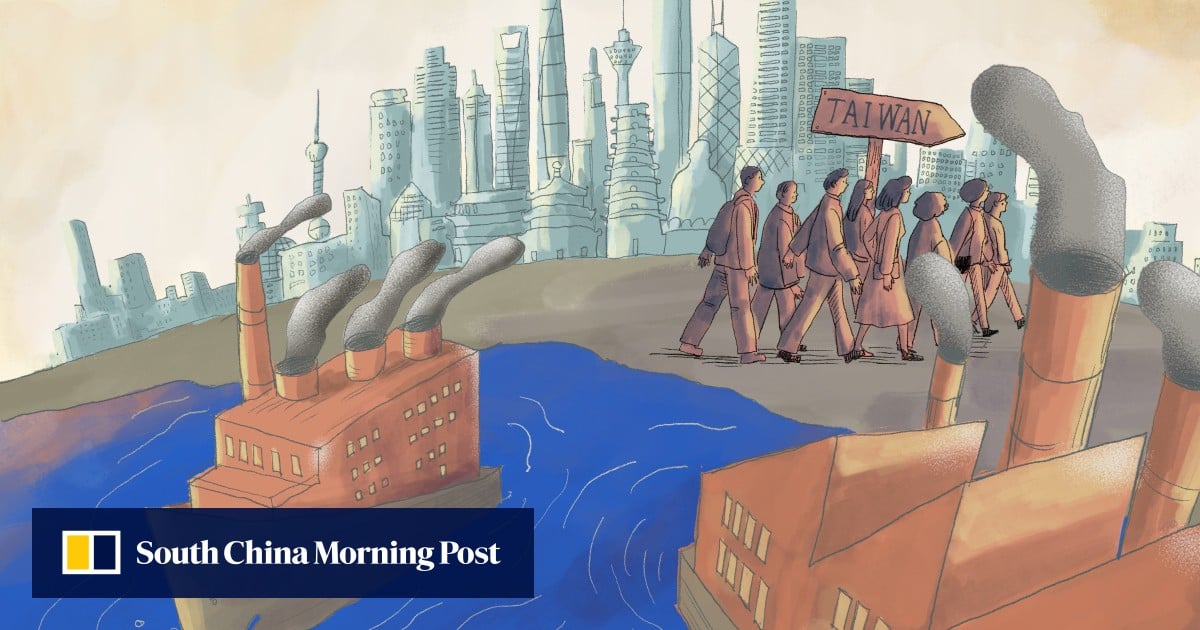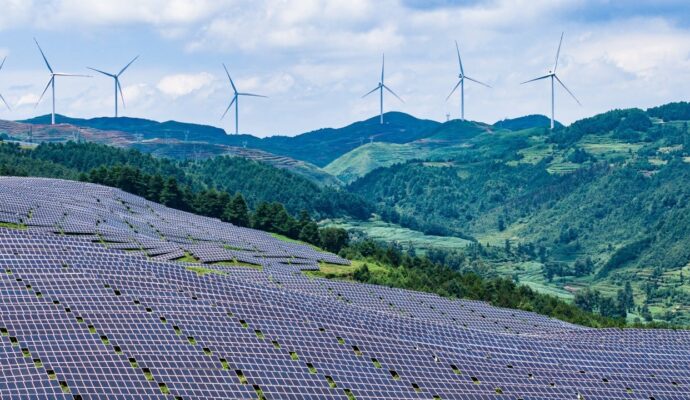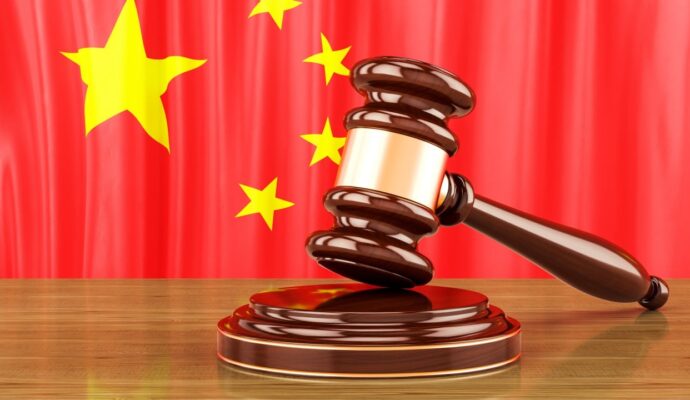
China’s richest county for the past 17 years, Kunshan boomed as Taiwan’s money flowed in. In total, 30 per cent of the county’s gross domestic product (GDP), 50 per cent of industrial output, 60 per cent of foreign investment, and 70 per cent of its imports and exports are directly tied to Taiwan-funded enterprises. As of 2020, there were more than 5,300 Taiwanese companies and around 100,000 Taiwanese people in Kunshan, according to the People’s Daily party mouthpiece.
With mainland China not doing well, Taiwan ups South Asia, Asean investments
With mainland China not doing well, Taiwan ups South Asia, Asean investments
So, if they were to leave, what sort of future would the county have?
Advertisement
The speculation has also cast a pall over cross-strait affairs. In the past three decades, the strengthening of economic ties has long been the cornerstone of peaceful relations between the mainland and the self-ruled island that Beijing considers a breakaway province that must eventually be reunited with the mainland – by force, if necessary.
This has left some to wonder whether an era is coming to an end.
No official data is available on how many Taiwanese companies have exited the county this year, but multiple businessmen confirmed that people are leaving, and others are at least exploring business opportunities outside not only the city but also the country.
It is getting increasingly difficult to convene people for regular gatherings in the Taiwanese business community in many towns of Kunshan, factory owners told the Post.
Advertisement
“When the Covid-19 lockdowns ended last year, it was not difficult at all to gather people for a dinner of 30 tables. But now, no matter how hard we try, it is – at most – 20 tables,” said Taiwanese construction-material supplier Adam Chang, who is also the head of a local business association.
In public, officials from both Beijing and Kunshan have vehemently denied that there has been an outflow of Taiwanese firms. In May, Ma Xiaoguang, spokesman for the Taiwan Affairs Office of the State Council, refuted Taiwanese media reports saying that one-third of Taiwanese companies in the city of Suzhou – which administers Kunshan – had left, and that most of the remaining two-thirds had transferred some production capacity out.
Some of the factories remain here, but the bosses have left
Ma called the reports false, countering that the city had 98 newly established Taiwan firms with used capital of US$612 million in the first quarter – respective increases of 6.5 per cent and 96 per cent compared with a year prior.
Advertisement
But it’s the losses – whatever they may be – that locals are more concerned with.
A floor-coating equipment manufacturer surnamed Chen was among those who left Kunshan earlier this year. The 28-year-old native of Taichung, Taiwan, resettled his facility in the mainland city of Huzhou, Zhejiang province, because the township where he had been operating in Kunshan – near the touristy site of Zhouzhuang, which is famous for its canals – decided to pivot toward its growing tourism industry while simultaneously tightening up controls on manufacturers.
“Some of the factories remain here, but the bosses have left,” Chen said, adding that young Taiwanese have still been coming to work on the mainland since Beijing eased border restrictions in January, but it does not appear to be offsetting the number of those leaving.
Advertisement
This is the opposite of the trend seen three decades ago, when the mainland saw flocks of Taiwanese firms – many of them small in size – coming in, as Beijing’s opening-up policy, lower costs and a similar cultural background made the mainland very appealing.
Beijing hints at changing trade pact with Taiwan amid probe into tariffs
Beijing hints at changing trade pact with Taiwan amid probe into tariffs
But nowadays, geopolitical concerns are having a bigger influence on Taiwanese firms’ decisions of whether to relocate operations away from the mainland.
Advertisement
Despite its rising labour and land costs, China is generally still considered the “world’s factory”, even as other countries have stepped up to challenge that standing. China’s supply chain and vast network of infrastructure give it manufacturing advantages over regional alternatives, but Taiwanese manufacturers have found themselves increasingly pressured by downstream foreign clients to move production elsewhere – such as Vietnam and Thailand – since 2018. That was when former US president Donald Trump started to push US companies to decouple from China and initiated a trade war with Beijing by imposing high tariffs on Chinese imports.
During the past three years of the pandemic, however, the soaring global demand for electronic products offered a bit of a respite to manufacturers, in terms of outward industrial capacity transfers.
The exodus of Taiwanese firms stands out – in comparison with other foreign companies or private enterprises in China – because they are concentrated so heavily on the export-focused electronics sector, said Peter Tu, a Kunshan-based machinery manufacturer.
[Exporters] to the United States must go to Vietnam … If they don’t go, they won’t receive any more orders
“Those with final products exported to the United States must go to Vietnam,” the Tainan native said. “That’s the request from their clients. If they don’t go, they won’t receive any more orders.
“So, despite all the inconveniences of a relocation, they still have to go, just to survive.”
The process seems to have already taken a toll on China’s exports. According to official customs data, exports from foreign manufacturers declined by 15.5 per cent, year on year, in the first seven months of 2023, compared with a 9 per cent general decline among all exporters.
The fall was mostly driven by dwindling shipments from the so-called processing trade, which involves importing all or some raw materials and re‑exporting the finished products after processing or assembly by enterprises within the country – with electronic products such as smartphones being the major products exported under the category.
In Kunshan, the settlement of large Taiwanese electronic manufacturers such as Foxconn – which also operates a second plant in southern Kunshan – has brought about and fed thousands of small electronic and mechanical auxiliary plants in the island’s entire supply chain for decades.
But now, if the big guys are mulling an exit, the smaller ones have no choice but to follow, multiple businessmen told the Post.
Hello, Mumbai? Taiwan’s tech firms consider ‘plan B’ amid US-China tensions
Hello, Mumbai? Taiwan’s tech firms consider ‘plan B’ amid US-China tensions
In addition to American importers, more and more clients from other countries say they are requiring Taiwanese exporters to build an alternative supply chain away from mainland China, over fears of rising uncertainties amid US-China tensions, potential disruptions from any future lockdowns, and because of escalating tensions across the strait.
Since the beginning of the year, grease-gun manufacturer Ray Kuo has been frequently asked by other Taiwanese factory owners in Kunshan the same question: “Should I go to Southeast Asia?”
But relocating to Southeast Asia is not without its challenges, as Kuo can attest. Poor infrastructure, unstable power supplies, different cultures and languages, and rising operational costs could serve to offset the benefits of cheaper labour and land.
In 2018, at the height of the US-China trade war, Kuo hastily invested 4 million yuan in a new plant in Thailand, as exports to the US accounted for around one-third of his company’s total revenue. But he failed to account for soaring operating costs in Thailand, and he lost 5 million yuan over four years before he was forced to reinvest in his original Kunshan facility late last year.
The major problem was Thailand’s incomplete supply chain, he said. His plant there still needed to import parts and raw materials from mainland China, resulting in additional shipping costs, tariffs and taxes that drove up expenses by more than 20 per cent.
If you don’t go, you are waiting for death. But if you go, you are courting death
“But the clients wouldn’t accept if you raised prices by 20 per cent,” Kuo said. “So, we have to continue manufacturing in China, and what we can do is improve our service and products. Though some clients are complaining, they are still placing orders from us. If they shift to other suppliers, we cannot stop them either. What we can do is explore new export markets while expanding our share in the domestic market.”
While Kuo still has the leeway to pivot to other business opportunities, the auxiliary plants whose major customers have already moved their production bases to Southeast Asia are facing the reality that staying on the mainland means lost orders, while moving would also come at considerable expense, he said.
And keeping multiple bases is not always a viable option for smaller firms, as it means many costs are doubled, with no guarantee that revenue will double, he added.
“Nobody is willing to leave; they are all forced by their clients,” said Kuo, who moved from Taichung to Kunshan 20 years ago. “It’s like, if you don’t go, you are waiting for death. But if you go, you are courting death.
“All of this is because of the conflicts between [China and the US]. We Taiwanese businessmen are completely victims.”
Younger Chinese are taking over family factories. Can they save the industry?
Younger Chinese are taking over family factories. Can they save the industry?
Five of the Kunshan-based Taiwanese factory owners who spoke with the Post said they expected their revenue to go down at least 40 per cent this year, and one expected that his peers in the region were likely facing similar declines.
In addition to capital leaving the mainland, the inflow of new money is also slowing down. According to data released by the Investment Commission of Taiwan’s Ministry of Economic Affairs, new investments in China by Taiwanese companies declined by 4.78 per cent in the first seven months of the year to US$2.01 billion.
Currently, a consensus among the community in Kunshan is that most young Taiwanese there are second-generation factory owners – or “changerdai” – who have been living on the mainland since childhood, while those who grew up back in Taiwan are getting more and more detached from the mainland, and are thus less willing to move there compared with the older generation.
Even among changerdai, those who are willing to take over their fathers’ plants on the mainland are not in the majority, as many prefer to pursue a different career path.
Meanwhile, in the face of shrinking profits against the background of a global slowdown, a staggering post-pandemic economic recovery in China, as well as rising geopolitical tensions, a wave of retirement has been brought forward. Many of the older generation who are entering their sixties and have devoted half of their lives to the mainland plants are simply closing down or selling off their assets and going back to Taiwan.
“This early wave of retirement is mostly because of the US-China tensions,” said Kuo, the grease gun manufacturer. “Because for many people in their fifties or sixties, while they are still able to maintain the normal operations of an existing plant, it is too risky for them to start over in Southeast Asia if their children don’t want to help out.”
The three years of stringent coronavirus controls, which restricted normal business travel, also accelerated the trend, he added.
Japan, Philippines, South Korea most open to ‘huge disruption’ of any Taiwan war
Japan, Philippines, South Korea most open to ‘huge disruption’ of any Taiwan war
“There is no actual impact on our behaviour, but it still has some psychological implications,” said the Huzhou-based Chen.
“How is it possible for Taiwanese businessmen to increase their investments if the sense of crisis in the Taiwan Strait is so imminent,” asked Kuo. “We won’t feel secure even if we pull our assets back to Taiwan, if there’s a war in the strait. We’d basically have nowhere to go but to jump into the sea.”
“As long as we can maintain peace across the strait, everyone will have the confidence to invest more, but in the current unstable circumstances, everyone is worried.”
Advertisement

